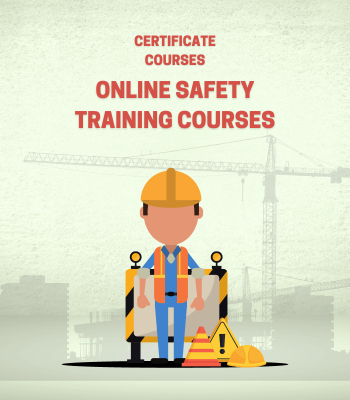5 Tips for Unlocking the Benefits of Online Training in Canada: How to Prevent Backing Incidents
1. Strategies for Reducing Risk in Online Training: Preventing Backing Incidents In Canada
Online training is becoming increasingly popular in Canada, but it can come with certain risks. To ensure that your online learning environment remains safe and secure for everyone involved, you should consider implementing some strategies to reduce the risk of backing incidents.
Backing incidents are when someone takes advantage of a vulnerable person or situation by offering services without consent or taking personal information from an unsuspecting individual. These types of activities could have serious consequences if they occur during an online training session, so here are some tips on how to prevent them:
1) Establish clear terms and conditions – Clearly define what constitutes acceptable behavior within your virtual classroom before beginning any coursework or sessions; this includes not sharing confidential information about yourself (or others). Make sure all participants understand these rules prior to starting their studies as well as throughout the duration of their program/course work. This will help create boundaries between students which may discourage potential malicious activity from occurring while also providing protection against legal action taken due to inappropriate conduct within the class setting itself.
2) Utilize strong passwords - Ensure that each student has created a unique password for accessing material related directly back-to-the-classroom settings such as discussion boards etc., making it harder for anyone other than those enrolled in classes access sensitive data shared through digital means like emails & file transfers etc.. Also make use two factor authentication systems where available too!
3) Monitor participation closely– Keep track who’s participating actively versus passively in order detect suspicious behaviour quickly . Pay close attention especially if theres been recent changes made regarding logins , IP addresses used ets . If anything seems out place contact appropriate authorities immediately ! 4 ) Educate users regularly – Provide regular education materials covering topics ranging from cyber security best practices & general safety awareness applicable both inside & outside classrooms environments alike .. It pays off greatly investing time into educating people around us about importance protecting our own privacy rights along with keeping ourselves away form unwanted situations arising via misuse technology !
Frequently Asked Questions
What measures can be taken to avoid backing incidents during online training in Canada?
To avoid backing incidents during online training in Canada, it's important to start your sessions off with some safety tips. Make sure everyone knows how to securely log into meetings and share their information privately. Set clear rules (e.g., no filming allowed) ahead of time so each participant feels comfortable sharing what they know without being recorded or feeling judged by peers or instructors. Additionally, provide a safe environment for all discussions where everyone can feel free to express themselves within the boundaries set out by you at the beginning of class! Finally, be available afterward if anyone has additional questions — talking about these experiences is often another step towards healing together as an online community!
Is there any way to ensure safety for those taking part in online training courses in Canada?
Yes, there are ways to ensure safety for those taking part in online training courses in Canada. When signing up for a course be sure the website is secured and credible. Also make sure you read any terms & conditions associated with joining an online class as they will have detailed guidelines on how information is kept secure and safe from hackers or anyone else who may intrude while using their site. Finally, if anything about the protection seems questionable it's best not to sign onto that particular course!
Canada Info:
Restaurants in Canada:
Flavours of Québec
Address: 510 77 Ave SE, Calgary, AB T2H 1C3
River Café
Address: 25 Prince's Island Park, SW, Calgary, AB T2P 0R1
Shokunin
Address: 2016 4 St SW, Calgary, AB T2S 1W3
